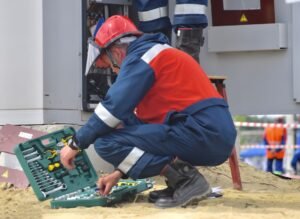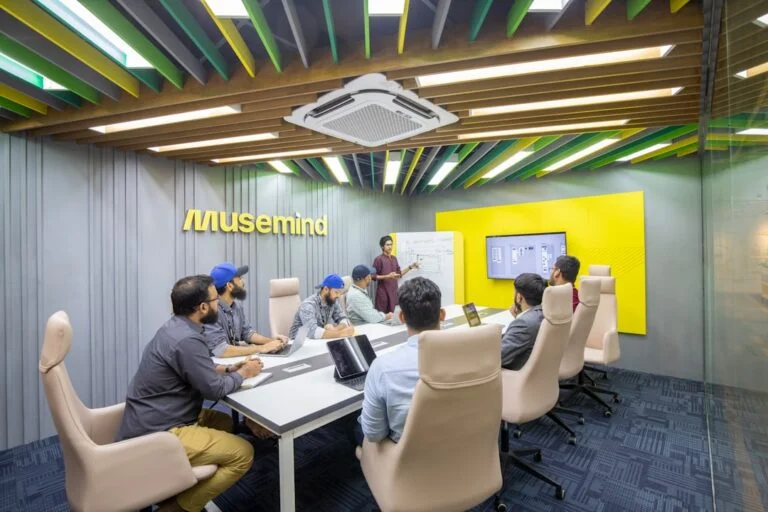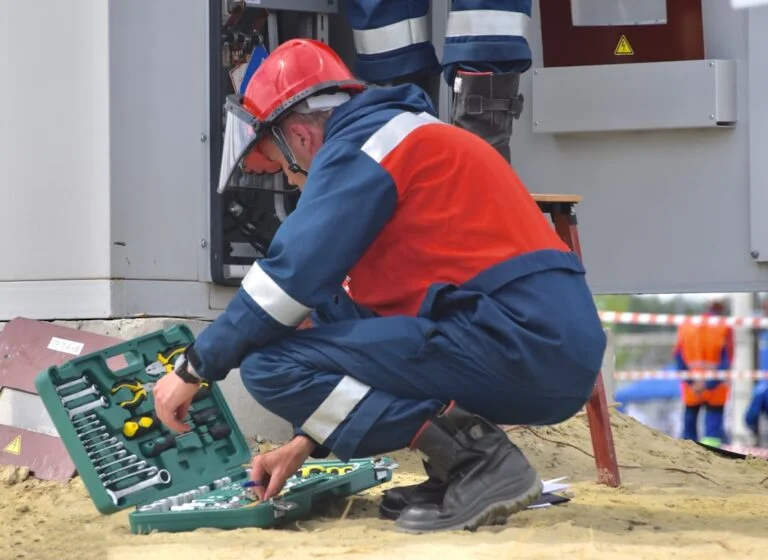Tools of the Mind is an innovative educational program designed to enhance early childhood education by integrating cognitive development with social-emotional learning. Developed by Dr. Elena Bodrova and Dr. Deborah Leong, this program is grounded in the principles of Vygotskian theory, which emphasizes the importance of social interaction and cultural context in learning. The program aims to equip young learners with essential cognitive tools that foster self-regulation, problem-solving, and critical thinking skills. By focusing on the interplay between cognitive and social development, Tools of the Mind provides a comprehensive framework that supports children in becoming active participants in their own learning processes. The program is particularly relevant in today’s educational landscape, where there is a growing recognition of the need for holistic approaches to teaching and learning. Traditional educational models often prioritize rote memorization and standardized testing, which can overlook the importance of nurturing a child’s emotional and social growth. Tools of the Mind addresses this gap by promoting a curriculum that encourages children to engage in meaningful interactions with their peers and educators. This approach not only enhances academic readiness but also prepares children for the complexities of life beyond the classroom. As educators and policymakers increasingly seek effective strategies to support early childhood development, Tools of the Mind stands out as a promising model that aligns with contemporary educational goals.
Key Takeaways
- Tools of the Mind is an educational program that focuses on developing self-regulation and executive function skills in young children.
- The program is based on Vygotsky’s sociocultural theory and emphasizes the importance of play and scaffolding in learning.
- Key components of the Tools of the Mind program include the use of play plans, intentional teaching, and the creation of a supportive classroom environment.
- Implementing Tools of the Mind has been shown to improve children’s self-regulation, academic achievement, and social-emotional development.
- Success stories of Tools of the Mind in education include improved student engagement, reduced disruptive behavior, and increased academic readiness for kindergarten.
Theoretical Framework of Tools of the Mind
At the heart of Tools of the Mind lies a robust theoretical framework rooted in the work of Lev Vygotsky, a prominent psychologist known for his contributions to developmental psychology and education. Vygotsky’s theories emphasize the significance of social interaction in cognitive development, positing that learning is inherently a social process. Tools of the Mind builds upon this foundation by advocating for collaborative learning experiences where children can engage with one another, share ideas, and develop their understanding through dialogue.
This social constructivist approach encourages children to learn from their peers, fostering a sense of community and shared responsibility for learning. Moreover, Tools of the Mind incorporates the concept of “scaffolding,” which refers to the support provided by educators to help students achieve higher levels of understanding and skill acquisition. In this context, teachers play a crucial role in guiding children’s learning experiences by offering appropriate challenges and support tailored to each child’s developmental stage.
This dynamic interaction between teacher and student not only enhances cognitive skills but also promotes self-regulation and independence. By creating an environment where children feel safe to explore, experiment, and make mistakes, Tools of the Mind cultivates a growth mindset that empowers learners to take ownership of their educational journeys.
Key Components of Tools of the Mind Program

The Tools of the Mind program is characterized by several key components that work synergistically to create an enriching learning environment. One of the most significant elements is the emphasis on “play-based learning.” Recognizing that play is a natural mode of learning for young children, the program integrates structured play activities that promote cognitive and social development. Through imaginative play scenarios, children are encouraged to explore various roles, solve problems collaboratively, and develop critical thinking skills.
This playful approach not only makes learning enjoyable but also allows children to practice essential life skills in a safe and supportive setting. Another vital component of Tools of the Mind is its focus on self-regulation strategies. The program teaches children how to manage their emotions, set goals, and monitor their progress toward achieving those goals.
Techniques such as “private speech,” where children verbalize their thoughts while engaged in tasks, are encouraged to help them internalize problem-solving strategies and enhance their focus. Additionally, educators are trained to model self-regulation techniques, providing children with concrete examples of how to navigate challenges effectively. By embedding these practices into daily routines, Tools of the Mind equips children with the tools they need to become resilient learners who can adapt to various situations both inside and outside the classroom.
Benefits of Implementing Tools of the Mind
| Benefits of Implementing Tools of the Mind |
|---|
| 1. Improved self-regulation skills |
| 2. Enhanced executive function |
| 3. Better social-emotional development |
| 4. Increased cognitive flexibility |
| 5. Higher academic achievement |
Implementing Tools of the Mind in educational settings offers numerous benefits that extend beyond academic achievement. One significant advantage is its ability to foster social-emotional development among young learners. By prioritizing collaborative learning experiences, children develop essential interpersonal skills such as empathy, communication, and conflict resolution.
These skills are crucial for building positive relationships with peers and adults alike, laying a strong foundation for future social interactions. As children learn to navigate group dynamics and work together toward common goals, they also cultivate a sense of belonging and community within their classroom environment. Furthermore, Tools of the Mind promotes cognitive development through its emphasis on critical thinking and problem-solving skills.
The program encourages children to engage in higher-order thinking by presenting them with open-ended questions and challenges that require creative solutions. This approach not only enhances children’s cognitive abilities but also prepares them for more complex academic tasks as they progress through their education. Research has shown that students who participate in play-based learning programs like Tools of the Mind demonstrate improved academic performance, greater motivation to learn, and increased engagement in school activities.
As such, implementing this program can lead to long-term positive outcomes for students as they transition into later stages of education.
Success Stories of Tools of the Mind in Education
Numerous success stories highlight the positive impact of Tools of the Mind on early childhood education across various settings. Schools that have adopted this program report significant improvements in children’s social skills, emotional regulation, and academic readiness. For instance, a study conducted in several preschool classrooms revealed that children who participated in Tools of the Mind demonstrated enhanced collaboration skills during group activities compared to their peers in traditional settings.
Teachers noted that students were more willing to share ideas, listen actively to one another, and resolve conflicts amicably—skills that are essential for success both in school and beyond. In addition to fostering social skills, success stories also emphasize academic gains associated with Tools of the Mind implementation. Educators have observed that children engaged in this program exhibit greater enthusiasm for learning and show improved performance in literacy and numeracy assessments.
For example, a kindergarten class utilizing Tools of the Mind reported higher scores on standardized tests compared to classes following conventional curricula. These outcomes underscore the effectiveness of integrating play-based learning with cognitive development strategies, demonstrating that when children are given opportunities to learn through exploration and collaboration, they thrive academically.
Challenges and Limitations of Tools of the Mind

Challenges in Implementing Tools of the Mind
Implementing Tools of the Mind comes with its own set of challenges and limitations. One of the significant hurdles is the need for comprehensive training for educators who wish to adopt this approach effectively. Teachers must be well-versed in Vygotskian principles and skilled in facilitating play-based learning experiences that promote self-regulation and cognitive development.
Training and Resource Limitations
This requirement can pose difficulties for schools with limited resources or those lacking access to professional development opportunities. Without adequate training and support, educators may struggle to implement the program’s strategies effectively, potentially undermining its intended benefits.
Aligning with Existing Educational Frameworks
Another challenge lies in aligning Tools of the Mind with existing curricular standards and assessment frameworks. In many educational systems, there is pressure to meet specific academic benchmarks through standardized testing, which can conflict with the program’s emphasis on play-based learning and holistic development. Educators may find it challenging to balance these competing demands while ensuring that students receive a well-rounded education that nurtures both cognitive and social-emotional growth.
Navigating Complexities for Effective Implementation
As such, schools must navigate these complexities thoughtfully to create an environment where Tools of the Mind can flourish alongside traditional educational expectations.
Tips for Implementing Tools of the Mind in the Classroom
Successfully implementing Tools of the Mind requires careful planning and consideration from educators seeking to create an effective learning environment. One essential tip is to foster a culture of collaboration among both students and teachers. Encouraging teamwork through group projects or cooperative learning activities can help build strong relationships among students while promoting essential social skills.
Educators should also model collaborative behaviors by actively engaging with students during play-based activities, demonstrating how to communicate effectively and resolve conflicts constructively. Another important strategy is to integrate self-regulation techniques into daily routines seamlessly. Educators can introduce simple practices such as mindfulness exercises or goal-setting discussions at the beginning or end of each day.
By consistently reinforcing these strategies throughout various activities, teachers can help students internalize self-regulation skills over time. Additionally, providing opportunities for reflection—such as journaling or group discussions—can encourage children to think critically about their learning experiences and develop a deeper understanding of their emotions and behaviors.
Future Directions for Tools of the Mind
As education continues to evolve in response to societal changes and advancements in research, Tools of the Mind is poised for further growth and adaptation within early childhood education. One potential direction involves expanding its reach beyond preschool settings into elementary schools or after-school programs. By adapting its principles for older students, educators could continue fostering critical thinking and social-emotional skills throughout a child’s educational journey.
This expansion could also involve developing resources tailored specifically for diverse populations or those with varying learning needs, ensuring that all children have access to high-quality educational experiences. Moreover, ongoing research into the effectiveness of Tools of the Mind will be crucial for refining its practices and demonstrating its impact on student outcomes. Collaborations between researchers and educators can lead to valuable insights into best practices for implementation while also addressing any challenges faced by teachers in diverse contexts.
As more schools adopt this innovative approach, sharing success stories and lessons learned will contribute to a growing body of knowledge that supports continuous improvement within early childhood education. Ultimately, by remaining responsive to emerging trends and research findings, Tools of the Mind can continue to play a vital role in shaping future generations of learners who are equipped with essential cognitive tools for success in an ever-changing world.
If you’re interested in exploring innovative educational approaches, particularly those that enhance cognitive development in children, you might find the “Tools of the Mind” methodology intriguing. While the links provided do not directly discuss educational methods, they do offer a variety of engaging content. For instance, you can read about cinematic achievements and storytelling in films, which indirectly relate to creative and cognitive development. Check out this article about a filmmaker’s journey and the impact of storytelling in education: Vermont Filmmaker’s Journey Culminates in Oscar-Nominated Film “Past Lives”. This can provide insights into how narratives and creativity play roles in cognitive and educational contexts.
FAQs
What is Tools of the Mind?
Tools of the Mind is an educational program designed to promote the development of self-regulation, executive function, and cognitive skills in young children. It is based on the principles of Vygotskian theory and emphasizes the use of play and collaborative learning to support children’s cognitive and social-emotional development.
What are the key components of Tools of the Mind?
The key components of Tools of the Mind include the use of developmentally appropriate play, scaffolding by teachers to support children’s learning, and the implementation of specific strategies to promote self-regulation and executive function skills. These strategies include the use of “private speech” (self-talk), planning and reflection activities, and the development of “play plans” to guide children’s play.
How is Tools of the Mind implemented in the classroom?
Tools of the Mind is typically implemented in preschool and early elementary classrooms. Teachers receive training in the program’s principles and strategies, and then they incorporate these into their daily classroom routines and activities. This may involve setting up specific play centers, providing materials and props to support imaginative play, and guiding children in the use of self-regulation strategies.
What are the benefits of using Tools of the Mind?
Research has shown that the use of Tools of the Mind can lead to improvements in children’s self-regulation, executive function, and academic skills. It has also been associated with positive social-emotional outcomes, such as increased cooperation and empathy among children. Additionally, the program has been found to be particularly effective for children from diverse cultural and linguistic backgrounds.


















+ There are no comments
Add yours